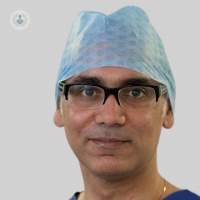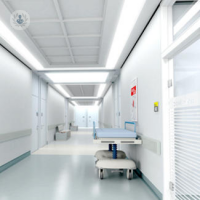What are bladder problems?
Men and women can experience a variety of bladder conditions, with some being more common in one gender than the other. Bladder problems can be described as abnormal bladder function. Some of the most common bladder problems are:
- Urinary tract infections
- Overactive bladder
- Urinary retention
- Incontinence (stress, urge, overflow, total)
- Interstitial cystitis (painful bladder)
- Bladder stones (calculi)
- Bladder cancer
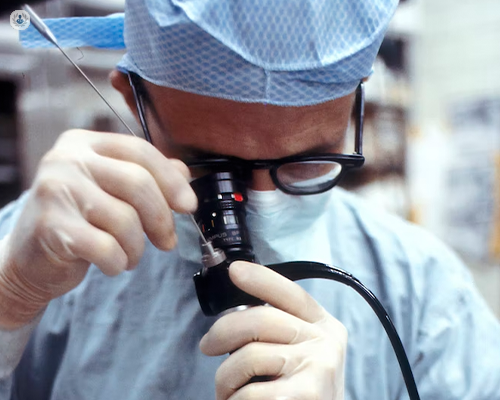
What is the general outlook for bladder problems?
The prognosis will depend on the condition at the root of your symptoms. If you suspect you have a health issue with the bladder, you should contact your GP or a specialist as when left untreated, some bladder conditions can affect overall health and cause further health complications.
What are the main symptoms of bladder problems?
Symptoms will depend on your condition, but bladder problems often involve one or several of the following:
- Frequent urination
- Being unable to hold in urine: leaking during everyday activities or at night
- Pelvic pain
- Nocturnal enuresis (adult bedwetting)
- Blood in urine (haematuria)
- Pain during urination
How are bladder problems diagnosed?
A doctor will initially note down your medical history and perform a physical exam to determine the cause of your symptoms. A physical examination may involve a pelvic exam for women and a prostate examination for men.
Regarding your medical history, they might ask about:
- Your drinking and eating habits
- Bowel habits
- If you’re on any medication
- About pregnancy and childbirth, if you’re a woman
- About your prostate, if you’re a man
To assist with providing your medical history, it can be useful to log the frequency of urination, when you urinate, if you leak, if you get a sudden and strong urge to urinate, and if you drank much liquid before leaking or if you experienced a strong urge to urinate.
They might also order lab tests:
- Urinalysis to check for blood and other substances in urine.
- Urine cytology to examine urine for cancerous or pre-cancerous cells in the urine.
- Urine culture to detect an infection. A sample of urine is placed into a culture dish and any bacteria is given time to grow.
They might order an imaging test such as an x-ray, ultrasound, CT (CAT) or MRI scan.
How are bladder problems treated?
Treatment will depend on your condition. Your specialist will be able to provide you with a personalised treatment plan.
Which type of specialist treats bladder problems
Urologists specialise in the diagnosis and treatment of bladder problems.
05-25-2017 06-07-2023Bladder problems
What are bladder problems?
Men and women can experience a variety of bladder conditions, with some being more common in one gender than the other. Bladder problems can be described as abnormal bladder function. Some of the most common bladder problems are:
- Urinary tract infections
- Overactive bladder
- Urinary retention
- Incontinence (stress, urge, overflow, total)
- Interstitial cystitis (painful bladder)
- Bladder stones (calculi)
- Bladder cancer

What is the general outlook for bladder problems?
The prognosis will depend on the condition at the root of your symptoms. If you suspect you have a health issue with the bladder, you should contact your GP or a specialist as when left untreated, some bladder conditions can affect overall health and cause further health complications.
What are the main symptoms of bladder problems?
Symptoms will depend on your condition, but bladder problems often involve one or several of the following:
- Frequent urination
- Being unable to hold in urine: leaking during everyday activities or at night
- Pelvic pain
- Nocturnal enuresis (adult bedwetting)
- Blood in urine (haematuria)
- Pain during urination
How are bladder problems diagnosed?
A doctor will initially note down your medical history and perform a physical exam to determine the cause of your symptoms. A physical examination may involve a pelvic exam for women and a prostate examination for men.
Regarding your medical history, they might ask about:
- Your drinking and eating habits
- Bowel habits
- If you’re on any medication
- About pregnancy and childbirth, if you’re a woman
- About your prostate, if you’re a man
To assist with providing your medical history, it can be useful to log the frequency of urination, when you urinate, if you leak, if you get a sudden and strong urge to urinate, and if you drank much liquid before leaking or if you experienced a strong urge to urinate.
They might also order lab tests:
- Urinalysis to check for blood and other substances in urine.
- Urine cytology to examine urine for cancerous or pre-cancerous cells in the urine.
- Urine culture to detect an infection. A sample of urine is placed into a culture dish and any bacteria is given time to grow.
They might order an imaging test such as an x-ray, ultrasound, CT (CAT) or MRI scan.
How are bladder problems treated?
Treatment will depend on your condition. Your specialist will be able to provide you with a personalised treatment plan.
Which type of specialist treats bladder problems
Urologists specialise in the diagnosis and treatment of bladder problems.
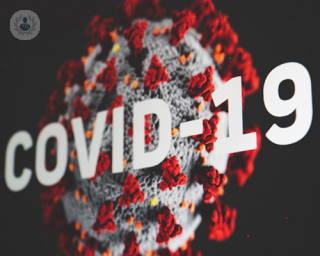

Do COVID-19 and long COVID affect the bladder? Here's what you should know
By Professor Vik Khullar
2025-01-28
To what extent do COVID-19 and long COVID affect the bladder? In our latest article, highly revered and skilled London-based consultant gynaecologist and urogynaecologist, Professor Vik Khullar, reveals how 'COVID bladder' has caused cause for concern throughout the pandemic, outlining the main symptoms patients with this relatively new medical condition have reported. See more


Why do I get recurrent bladder infections?
By Ms Charlotte Chaliha
2025-01-28
A bladder infection is a common condition in women, and unless you’re the lucky few who’s never had one, you’ll be very familiar with the symptoms. Ms Charlotte Chaliha, a top obstetrician and gynaecologist in London, explains why in many of these women a reinfection occurs and what preventative measures you can take. See more
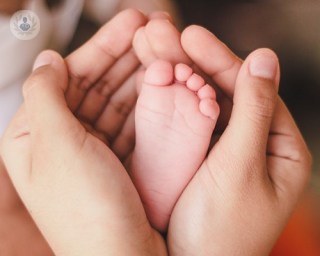

Postnatal bladder problems: What you need to know
By Ms Sameena Muzaffar
2025-01-28
Unfortunately, many women develop bladder problems after giving birth. In her latest online article, highly experienced consultant obstetrician and gynaecologist Ms Sameena Muzaffar explains how common these bladder problems are, what causes them and how they can be treated. See more


When should you visit a well woman clinic?
By Dr Fakher Gendy
2025-01-28
A well-woman clinic is designed to make it easier for women to access speedy diagnostic and treatment services for a range of common issues. Expert consultant gynaecologist Dr Fakher Gendy tells us what kind of problems someone can have investigated at a well-woman clinic and what to expect from the service. See more
Experts in Bladder problems
-
Mr Sarb Sandhu
UrologyExpert in:
- Bladder cancer
- Prostate
- Vasovasostomy (vasectomy reversal)
- Vasectomy
- Prostate cancer
- Bladder problems
-
Mr Rajesh Kavia
UrologyExpert in:
- Urinary incontinence
- Prostate
- Bladder problems
- Urinary tract infection
- Paediatric urology
- Urinary incontinence in women
-
Mr Sachin Malde
UrologyExpert in:
- Bladder cancer
- Cystitis
- Urinary incontinence
- Bladder problems
- Benign prostate enlargement
- Interstitial cystitis
-
Mr Richard Hindley
UrologyExpert in:
- Prostate cancer
- Benign prostate enlargement
- PSA test
- Green light laser surgery
- Prostate biopsy
- Bladder problems
-
Mr Mark Lynch
UrologyExpert in:
- Prostate cancer
- Prostate biopsy
- Benign prostate enlargement
- Bladder cancer
- Bladder problems
- Kidney stones
- See all

The Parkside Suite Wexham
The Parkside Suite Wexham
Wexham Park Hospital, SL2 4HL, Berkshire
No existe teléfono en el centro.
By using the telephone number provided by TOP DOCTORS, you automatically agree to let us use your phone number for statistical and commercial purposes. For further information, read our Privacy Policy
Top Doctors

The Droitwich Spa Hospital - part of Circle Health Group
The Droitwich Spa Hospital - part of Circle Health Group
St Andrews Rd, Droitwich WR9 8DN
No existe teléfono en el centro.
By using the telephone number provided by TOP DOCTORS, you automatically agree to let us use your phone number for statistical and commercial purposes. For further information, read our Privacy Policy
Top Doctors

Spire Little Aston Hospital
Spire Little Aston Hospital
Little Aston Hall Drive, Sutton Coldfield, B74 3UP
No existe teléfono en el centro.
By using the telephone number provided by TOP DOCTORS, you automatically agree to let us use your phone number for statistical and commercial purposes. For further information, read our Privacy Policy
Top Doctors
-
The Parkside Suite Wexham
Wexham Park Hospital, SL2 4HL, Berkshire, WexhamExpert in:
- Colorectal surgery
- General Surgery
- Breast augmentation
- Dermatology
- Obstetrics and Gynaecology
- Medical Oncology
-
The Droitwich Spa Hospital - part of Circle Health Group
St Andrews Rd, Droitwich WR9 8DN, Droitwich SpaExpert in:
- Abdominal ultrasound
- Abdominoplasty
- Vascular Surgery
- Arthritis
- Blepharoplasty
- Hip
-
Spire Little Aston Hospital
Little Aston Hall Drive, Sutton Coldfield, B74 3UP, Sutton ColdfieldExpert in:
- Bariatric Surgery
- General Surgery
- Orthopaedic surgery
- Robotic Surgery
- Diagnostic Imaging
- Ophthalmology
- See all
- Most viewed diseases, medical tests, and treatments
- Osteoporosis
- Menopause support
- Tubal factor infertility
- Complex endometriosis
- Fertility preservation
- Female infertility
- Ovulatory disorders
- Surrogacy
- Pelvic ultrasound
- Undescended testicle (Cryptorchidism)
